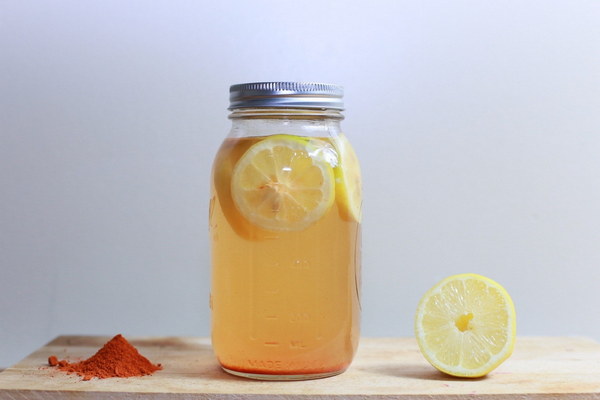Does Brewing Tea Help Remove Dampness in the Body
In traditional Chinese medicine, dampness is considered an imbalance in the body that can lead to various health issues. Many people turn to herbal teas as a natural way to combat dampness. But does brewing tea really help remove dampness from the body? Let's explore the topic in detail.
Firstly, it is essential to understand what dampness is in Chinese medicine. Dampness is a condition where excess moisture accumulates in the body, leading to symptoms such as fatigue, bloating, and weight gain. This condition can be caused by various factors, including diet, environment, and lifestyle.
Herbal teas have been used in Chinese medicine for centuries to address various health issues, including dampness. Many herbal teas contain natural ingredients that are believed to help eliminate dampness from the body. Here are some popular teas that are commonly used for this purpose:
1. Pu-erh Tea: Pu-erh tea is a type of fermented tea that is known for its ability to aid digestion and promote weight loss. It is believed that Pu-erh tea helps to eliminate dampness by improving the body's metabolic function.
2. Green Tea: Green tea is rich in antioxidants and has been shown to help with weight loss and reduce inflammation. It is also believed to aid in removing dampness by promoting healthy digestion.
3. Chrysanthemum Tea: Chrysanthemum tea is a popular herbal tea in China, known for its cooling properties. It is believed that chrysanthemum tea helps to expel dampness from the body by promoting sweating and cooling down the body's internal heat.

4. Peppermint Tea: Peppermint tea has a calming effect on the digestive system and is believed to help eliminate dampness by improving digestion and reducing bloating.
5. Ginger Tea: Ginger tea is known for its warming properties and is often used to treat colds and flu. It is also believed to help remove dampness from the body by increasing circulation and promoting sweating.
While these herbal teas are believed to help with dampness, it is important to note that the effectiveness of these teas can vary from person to person. Some people may find that these teas help alleviate their symptoms, while others may not experience any significant benefits.
To maximize the potential benefits of herbal teas for dampness, here are some tips:
1. Drink the tea regularly: Consistency is key when it comes to reaping the benefits of herbal teas. Try to drink the tea daily or several times a week to see if it makes a difference.
2. Pay attention to your diet: What you eat can affect the accumulation of dampness in your body. Avoid foods that are known to exacerbate dampness, such as sugary, fatty, and cold foods.
3. Maintain a healthy lifestyle: Regular exercise, adequate sleep, and stress management can all help improve your body's overall balance and reduce dampness.
4. Consult with a healthcare professional: If you are experiencing symptoms of dampness or any other health issues, it is best to consult with a healthcare professional before starting any new treatment, including herbal teas.
In conclusion, while there is no scientific evidence to prove that brewing tea can remove dampness from the body, many people have found that certain herbal teas can help alleviate their symptoms. If you are considering trying herbal teas for dampness, it is best to consult with a healthcare professional and incorporate them into a holistic approach to improve your overall health and well-being.









